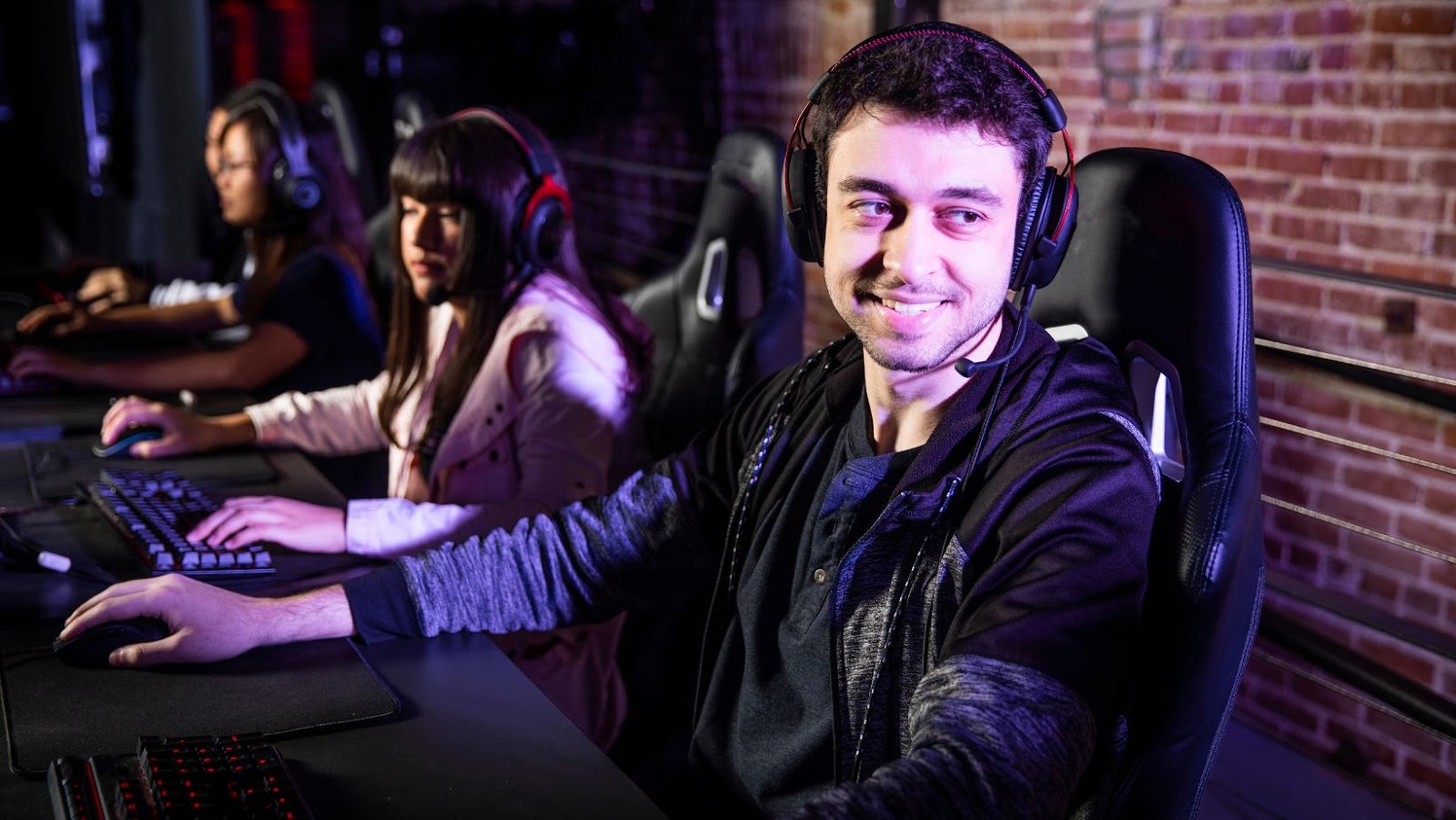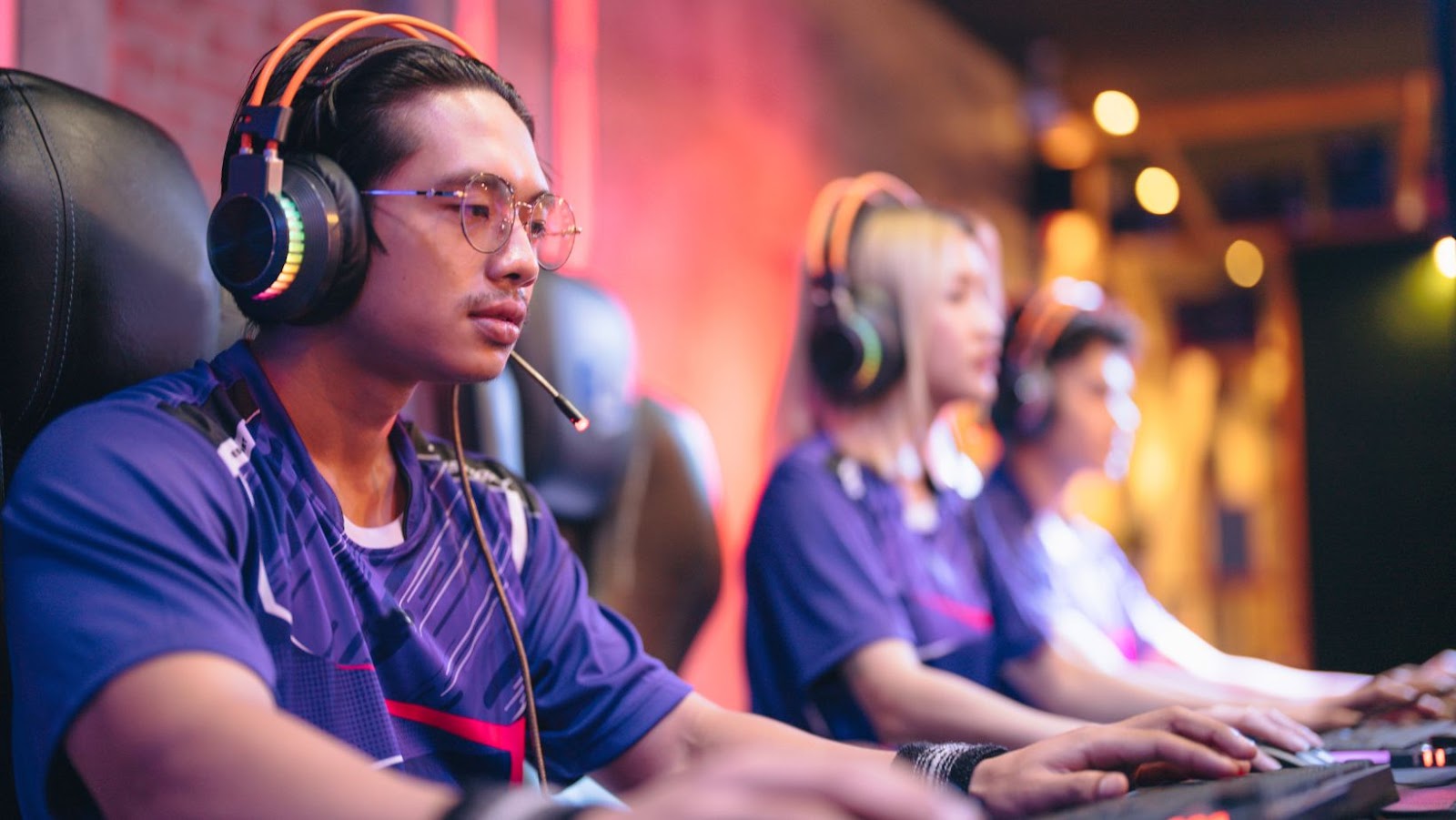In the thrilling world of esports, every second counts. Whether you’re a newbie or a seasoned gamer, there’s always room for improvement. This article is your guide to leveling up your esports game, filled with tips and tricks that’ll help you outsmart your opponents and come out on top.
Understanding the Basics of Esports
Now that you’ve immersed yourself in the riveting world of esports, it’s time to delve deeper. The subsequent part of this article elucidates fundamental aspects starting from what esports actually constitutes, followed by the different types of esports games prevalent in the gaming world.
 What Are Esports?
What Are Esports?
Esports, short for Electronic Sports, is a competitive video gaming phenomenon where players, either individually or as part of a team, participate in organized contests. According to Newzoo, a leading global provider of games and esports analytics, more than 495 million people worldwide tuned into esports in 2020. From local community events to global championships, gaming enthusiasts from various walks of life demonstrate their skills in esports competitions, attracting spectators, both offline and online.
The Different Types of Esports Games
Esports games exhibit immense diversity, each offering unique experiences and mechanics. From strategic pauses in slower-paced games to the intense real-time fights in faster ones, there is an esports game to suit every sporting palate.
- First-Person Shooter (FPS) Games: FPS games, such as Counter-Strike: Global Offensive and Overwatch, involve a gun-based combat scenario from the protagonist’s perspective.
- Multiplayer Online Battle Arena (MOBA) Games: MOBA games like League of Legends and Dota 2 feature strategic team play where each team attempts to destroy the opponent’s base.
- Real-Time Strategy (RTS) Games: Classic esports examples of RTS games include Starcraft II, with the emphasis on resource management and strategic positioning.
- Sports and Racing Games: FIFA and Rocket League are prime examples of typical sports and racing games that have transitioned into the esports arena.
- Fighting Games: These include titles like Tekken and Street Fighter that emphasize one-versus-one combat.
- Battle Royale Games: Players in games like Fortnite and PUBG start empty-handed and scavenge for resources to be the last one standing.
 Esports Tips
Esports Tips
Entering the exciting world of esports usually starts with more losses than victories, but several tips can help beginners turn the tables. These tips stem from practical considerations, refined strategies, and insightful learning tactics.
Choosing the Right Game
Embarking on an esports journey begins with selecting the right game. An optimal choice aligns with the player’s personal interests, natural skills, and dedication to learning. It’s important not to fall for the popularity trap, assuming the fame of games like Fortnite, Call of Duty, or Dota 2 guarantees personal success and satisfaction. The variety of esports genres mentioned earlier, including FPS, MOBA, RTS, Sports/Racing, Fighting, and Battle Royale, offers a wide array of choices. Each genre caters to different skills sets and interests, for instance, Starcraft II, a notable RTS game, requires excellent tactical planning. Meanwhile, FIFA, a renowned sports game, demands strong timing skills and in-game awareness.
Learning From Professional Players
Observation serves as a powerful tool when it comes to improving one’s gaming skills. Watching professional players provides insight into their strategies and playstyles. Platforms like Twitch and YouTube are treasure troves of esports content, where Live matches, gameplays, and tutorials of professional players are regularly broadcast. It allows beginners to understand the nuances of the game, learn about different strategies, and expose themselves to various playing styles.
 Advanced Strategies for Competitive Play
Advanced Strategies for Competitive Play
Taking esports skills to the next level requires a deeper understanding and implementation of advanced strategies. Mastering these aspects, competitive gaming transforms from mere fun to a serious pursuit of excellence.
Team Dynamics and Communication
In esports, effective communication underlies successful team dynamics. Game groups, regardless of genre, include multiple roles that must synchronise efforts towards a common goal. Examples include the assault group, support cluster, and defender cordon in an FPS Game. Formulating strategies, alerting game-shifts, and coordinating attacks require quick, accurate exchanges of information.
Adopting predefined code words accelerates communication. Directives like “Push”, “Hold”, or “Retreat” convey clear actions within seconds. Strategic communication aids contribute to the team’s performance, negating chances of misinterpretation while promoting swift decision-making.